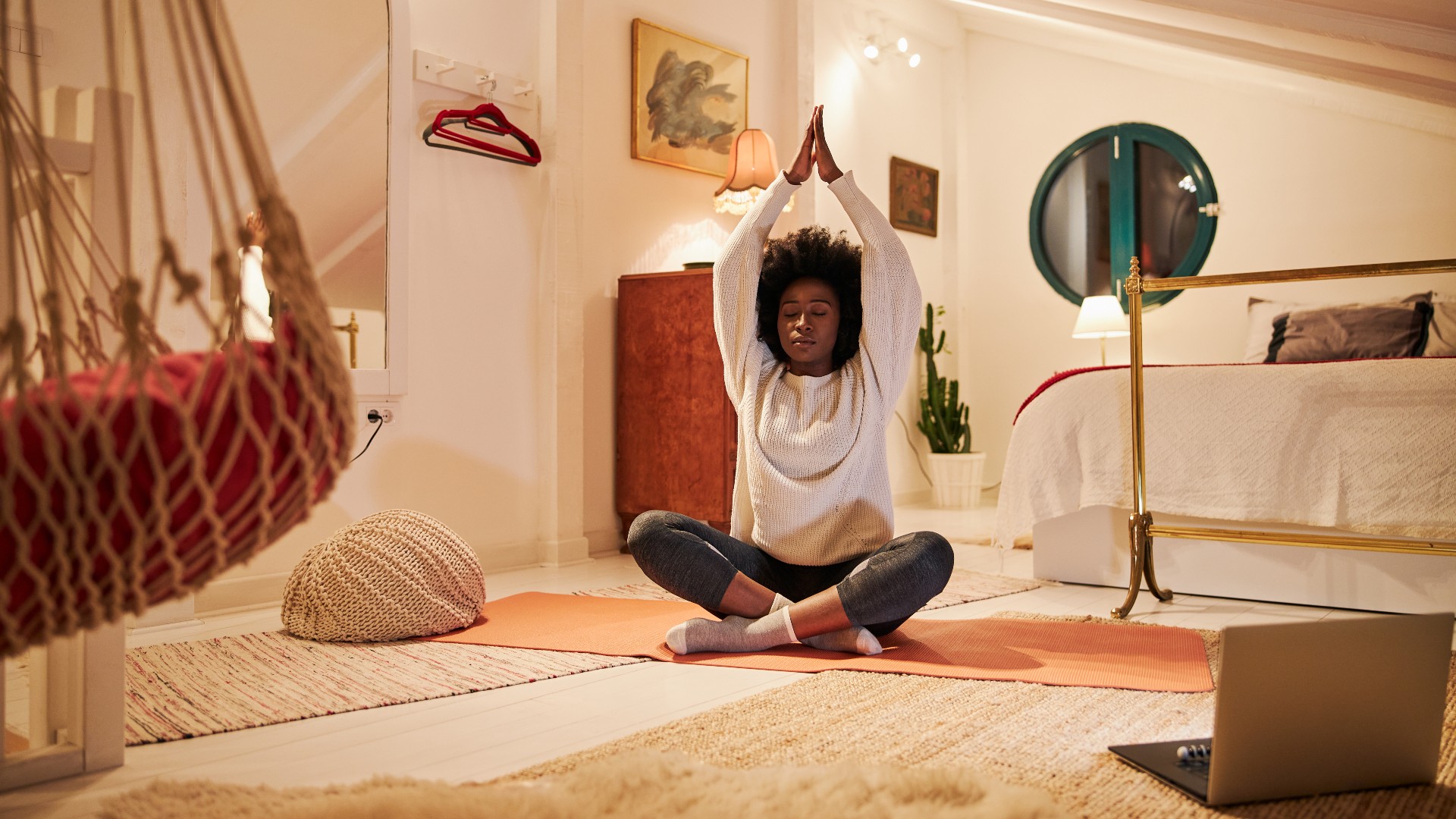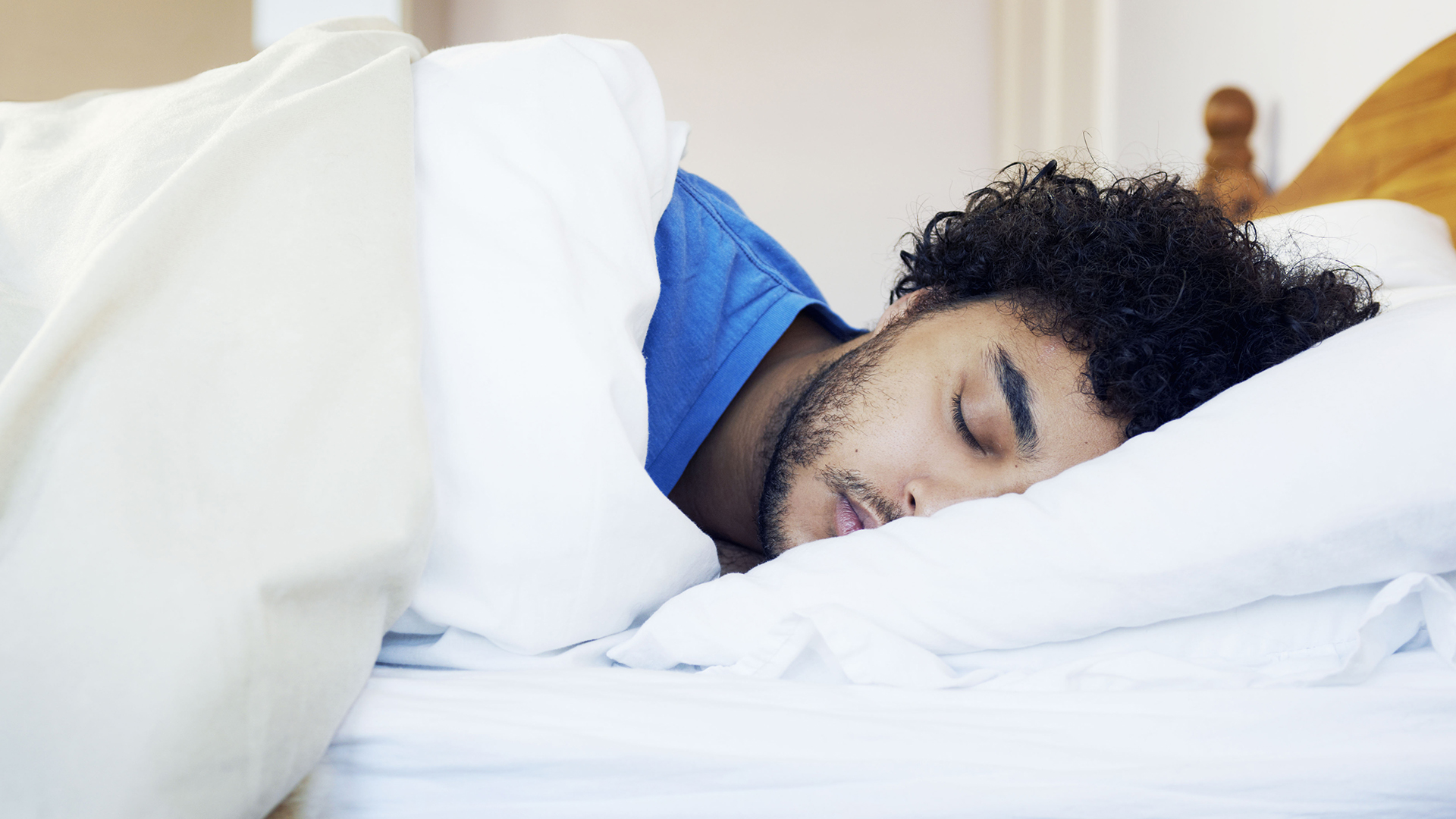Should you exercise before you sleep?
Exercise can help relieve stress and anxiety, but should you exercise before you sleep?

Sleep and exercise go hand in hand on any journey to optimal health. But should you exercise before you sleep? In years gone by, it was thought that exercising right before you hit the hay could have negative connotations. And at first glance, this thought process makes sense.
Whether it’s using the best exercise bikes or the best adjustable dumbbells, working out gets your heart rate pumping, which increases your body’s core temperature, and a rise in temperature can make it hard for you to fall asleep.
However, new and emerging research published in the European Journal of Sport Science has found that as long as you exercise at least 90 minutes before bedtime, you should be able to reap the rewards exercising before sleeping can bring.
To find out how exercise can affect sleep, what type of exercise is best before your slumber and whether you should workout after a poor night’s sleep, keep reading.
Should you exercise before sleep?
Contrary to popular belief, it’s been proven that exercising before snoozing can have a wide and beneficial impact on the quality and amount of sleep you get.
In particular, one article published in the Society for Psychophysiological Research found exercise performed before sleep does not impair sleep quality. “Rather, its practice improves sleep in good sleepers who are nonathletes, and may be considered to improve sleep pattern,” researchers concluded.
But how so? Emerson Wickwire, member of the American Academy of Sleep Medicine and Professor and Section Head of Sleep Medicine at the University of Maryland School of Medicine says: “Exercise is a wonderful activity with myriad health benefits. Generally speaking, exercise can improve sleep by reducing stress, increasing the body’s natural sleep drive, and even creating a great end of day ritual, for example going to the gym after work, or taking a neighborhood stroll after dinner.”
Get the world’s most fascinating discoveries delivered straight to your inbox.
However, as Wickwire notes, it’s important not to exercise vigorously too close to bedtime. He says: “Getting your heart rate up and breaking a sweat within three hours of bed increases core body temperature, which makes it harder to fall asleep at night.”

Emerson Wickwire is Professor of Psychiatry and Medicine at the University of Maryland School of Medicine, and Section Head for Sleep Medicine at the University of Maryland Midtown Medical Center. Wickwire completed his advanced training in sleep at Johns Hopkins School of Medicine, where he also served as Assistant Professor. He previously co-founded a leading interdisciplinary sleep medicine center that became a model for comprehensive sleep medicine centers throughout the country. He is a frequently sought after expert and has been featured in publications including US News and World Report, Fast Company, the Baltimore Sun, and numerous others.
How does exercise affect sleep?
1. Exercise relieves stress
“Exercise is a well-known stress reliever,” Wickwire explains. “And stress is incompatible with sleep.”
This point was proven in one study published in Nature and Science of Sleep which looked at how exercise could help college students manage stress levels and their sleep during their examination periods. The result?
Researchers found that physical activity had a ‘positive effect’ on sleep quality and wellbeing during academic stress periods. However, the study highlighted that this depends on the total amount of activity performed within the stress period. Researchers found that the moderate intensity activity of 150 minutes per week "seems to be enough to profit from the stress-buffering and health-promoting effects."

2. Exercise promotes sleep
We know that exercise burns calories. “And the more calories we burn, the more need for sleep or body builds,” Wickwire tells us.
But there’s more. When our body does burn calories it helps decrease the risk of excessive weight gain and obesity. This is a crucial point as obesity has been proven to have consequential impacts on sleep and according to research published in the Journal of Sleep Medicine and Disorders, it can result in sleep apnoea.
In the study, which looks at obstructive sleep apnea (OSA) and obesity and the implications these have on our health, researchers found: “There is a linear correlation between obesity and OSA. In obese people, fat deposits in the upper respiratory tract narrow the airway; there is a decrease in muscle activity in this region, leading to hypoxic and apnoeic episodes, ultimately resulting in sleep apnea.”
While a second study, published in the International Journal of Clinical and Laboratory Medicine, noted that physical activity, especially aerobic exercise, could reduce symptoms for people living with obstructive sleep apnoea.
3. Exercising results in better sleep efficiency
Sleep efficiency — which can be measured in the time it takes to fall asleep, the amount of time spent in a deep sleep and fewer awakenings — is something we are all searching for.
In an article published in the Sleep Medicine Journal, researchers found that high exercise exertion before bedtime was associated with better sleep efficiency.
Researchers said: “High self-perceived exercise exertion was associated with more deep sleep, shortened sleep onset time, fewer awakenings after sleep onset, and shorter wake duration after sleep onset.”

Is there any particular exercise that is good for sleep?
The answer to this questions differs from person to person. You might prefer to perfect your home weight training or perform aerobic exercise before sleep, but whatever physical activity you favour, you should do so in a moderate fashion and at least 90 minutes before bedtime.
In a small 2020 study, published in the European Journal of Sport Science, researchers tasked 12 males to complete either 30 minutes of moderate-intensity aerobic exercise, half an hour of moderate-intensity resistance training or no exercise at all.
They found that although the core body temperature increased in those who did the two different forms of exercise, it returned to pre-exercise levels in the 90 minutes prior to bedtime. Therefore researchers concluded that a ‘single bout of moderate-intensity aerobic exercise or moderate-intensity resistance exercise’ which ceased at least 90 minutes before bed could be performed without compromising their sleep.
This is why Wickwire believes in finding an exercise program that works for you and your schedule. He says: “Several studies have looked at the relationship between different types of exercise and sleep, such as aerobic exercise, resistance training for weightlifting, and even yoga. For most adults, the key is to adopt a balanced exercise program that you enjoy, and stick with

Should you workout if you’ve slept poorly?
You can workout even if you’ve not had the best night’s sleep. However it should be done with caution.
Wickwire says: “Getting a good workout, whether that’s hitting the gym, the treadmill, or tennis court, or even just walking your dog, can be a great way to increase endorphins and reset your mood after a night of poor sleep. Healthy exercise is almost always a good thing, helping us live healthier lives and feel better doing it.”
Becks is a freelance journalist and writer writing for a range of titles including Stylist, The Independent and LiveScience covering lifestyle topics such as health and fitness, homes and food. She also ghostwrites for a number of Physiotherapists and Osteopaths. When she’s not reading or writing, you’ll find her in the gym, learning new techniques and perfecting her form.
 Live Science Plus
Live Science Plus






